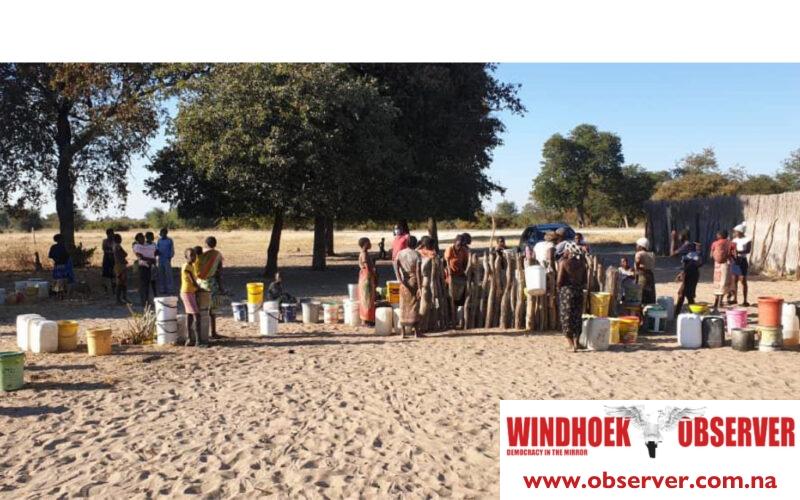Martin Endjala
The prevalence of water challenges is increasing for rural communities in the Zambezi Region due to ageing infrastructure and depleted water supply.
This is according to Judea Lyaboloma Constituency councillor Humphrey Divai, who confirmed this to the Windhoek Observer on Wednesday.
According to Dival, most rural communities in the constituency and other parts of the Zambezi Region do not have enough water services because of limited availability and administrative problems.
He said failure to maintain and repair dried-out boreholes is among the biggest challenges.
“Rural water supply in the region does not stock or procure parts for boreholes, and community members buy parts with their own money for government boreholes to be repaired when broken down,” he said.
He stated that the water challenge has caused many deaths in the constituency as human-wildlife conflict has occurred, particularly at water points such as rivers.
In the 2023/2024 natural calamity of drought, he said, there has been and still is a high increase in water consumption for both humans and animals, fearing that the limited boreholes supplying water to communities may dry out if the government does not intervene as soon as possible.
He believes that drilling more boreholes and connecting the Kongola to Malengalenga pipeline and the Zambezi to Muyako pipeline will improve the situation. “When this is achieved, it will ease the water challenges in the Zambezi Region,” he said.
A community member from the Ngonga area, Timothy Sitali, said that the area is grappling with water scarcity due to broken pumps which makes it difficult to access water.
Divai said that although the area has rehabilitated boreholes, they lack pipelines and pumps, allowing them to dry out and deteriorate.
He called on the Ministry of Agriculture, Water and Land Reform to speed up the drilling of borehole programmes to help the community in dire need of water.
Geoffrey Simbuu from Lizauli complained that for the past five months, they have been struggling with water.
According to him, the current water tank has run dry, and the little water left in the river is left to help the community and the animals, describing the situation as catastrophic.
“We are suffering, competing for water with the animals, and the little livestock we have is now also dying; we need an extra tank and boreholes to address the water situation. Thirty-four years after, and we are still living like an oppressed community,” he argued.
Darlams Kajwa from the Mbambazi area said the area only has two boreholes, one belonging to the school and one to the community.
While pointing out that nearby villages without boreholes frequently use the same borehole, Kajwa said that one of the boreholes is old and needs replacement.
He suggested that they need at least two or three additional boreholes, one in Mbambazi and two on the east and west, to address water shortages in other areas.
He said this will further extend assistance to other faraway areas that are also grappling with shortages of water.
“If we can get these boreholes drilled and operational with pipelines to address the water pressure complaints by extending the pipeline distance, this will further help the community access water at all times. But we are urging the councillor and the government to hurry before the situation gets to the point of no return,” he argued.




